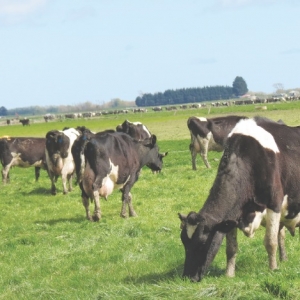Many years ago I was taught there are dangers in arguing from the particular to the general. In the past 20 years there has been a surge in dairy farms and dairy cow numbers. No one can argue that problems have occurred because of this escalation. It has been easy to identify farms that have caused problems, and apply criticism to the whole dairy industry. It seemed to me that Lancashire did argue from the particular to the general, as did Dr Mike Joy. Environmental success stories are often not told, but failures make news.
Pollution of our waterways takes place close to our towns and cities and is certainly not solely from dairy farming; that is a convenient whipping boy.
I am interested in the comments made by Joy. Why did he choose to give an interview to The New York Times? What were his motives and what benefits and improvements did he feel he could achieve by taking the action he did? Of course he has a right to speak, but since his comments were potentially damaging, it would be nice to know what benefits he envisaged by risking damage and costs to New Zealand industry. Massey University has been a constructive supporter of the New Zealand dairy industry, from the time of Professor Riddet and no doubt earlier than that.
Lancashire’s asserts “the industry has been sustained by extraordinary hikes in land prices... the industry strategy given the inevitable environmental damage seems flawed.”
Without the increase in dairy production to 25% of our export income New Zealand would be looking financially more like Greece. And farmers in general do not live on the capital increase in their land; they have to sell it to access the gain. That is a typical and widely held city/academic view. Our family has held our land since 1850; the capital gain has not been realised. This is the case for a number of well known farming families.
Lastly, this quote from Lancashire: “Dairy industry spokesmen are on record as saying they will not tolerate a reduction in stocking rates and appear stuck in grazing philosophies propounded in the 1950s and 1960s.”
What total bullshit – I can’t think of a better term. It is widely known that luxury feeding is not profitable, any more than is underfeeding. As in so many farming situations a middle ground is the most profitable.
Lancashire asserts, “Many farmers now recognise that our dairy cows are fed perhaps as much as 50% below their genetic potential; they can at least maintain production at lower stocking rates by better feeding with concomitant reductions in environmental damage.”
Sometimes this can be true. But high production alone is not the most important factor; highest profitability certainly is. This has been recently demonstrated by Colin Armer, a large scale and successful dairy farmer who has consistently focused on profitability.
The main limitation in matching the production of some European high producing dairy herds is our grassland farming. Grass is a cheap fodder, very much cheaper than concentrates fed to European cows, so our dairy products, without subsidies, can land in Europe at cheaper prices than their concentrate fed and subsidised products.
If top production should be the only criteria, in Kuwait high production was able to be achieved with low labour costs, at 400% higher than imported product.
I have the greatest respect for the contribution made by universities and scientists to farming in general. Because of the status these people have, it is important they tread carefully when getting into political arguments.
• Roger Marshall is a Rangitikei dairy farmer.
















